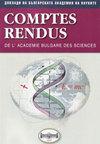Anti-tumour Activity of Bioactive Compounds Isolated from the Hemolymph and Mucus of the Garden Snail Helix aspersa against a Panel of Human Cancer Cell Lines
IF 0.3
4区 综合性期刊
Q4 MULTIDISCIPLINARY SCIENCES
Comptes Rendus De L Academie Bulgare Des Sciences
Pub Date : 2023-10-01
DOI:10.7546/crabs.2023.09.05
引用次数: 0
Abstract
Cancer remains a significant global health concern, necessitating the search for new effective and safe anti-cancer agents. Natural products derived from plants and animals, including mollusks like snails, have gained attention as potential sources of novel anti-cancer compounds. Haemocyanins (Hcs), large copper-containing glycoproteins involved in oxygen transport in mollusks, have shown promise as anti-cancer agents. This study focuses on evaluating the in vitro anti-tumour efficacy of bioactive substances obtained from the hemolymph of the garden snail Helix aspersa on various human cancer cell lines representing different types of cancer. The results demonstrate that certain hemocyanin subunits from H. aspersa exhibit cytotoxic activity comparable to cisplatin, a widely used chemotherapy drug. Additional assays confirm the cytotoxic effects of the tested substances on cancer cells. The study underscores the potential of natural compounds from H. aspersa as alternative therapeutic agents for cancer treatment, while highlighting the need for further investigation. The identification of specific proteins responsible for the observed anti-proliferative effects in the mucus of H. aspersa provides insights for the development of novel cancer therapies.园螺血淋巴和粘液中分离的生物活性化合物对一组人癌细胞的抗肿瘤活性
癌症仍然是一个重大的全球健康问题,有必要寻找新的有效和安全的抗癌药物。从植物和动物中提取的天然产物,包括蜗牛等软体动物,作为新型抗癌化合物的潜在来源而受到关注。血红蛋白(Hcs)是软体动物体内参与氧运输的大型含铜糖蛋白,已显示出抗癌药物的前景。本研究主要评价从园螺血淋巴中提取的生物活性物质对代表不同类型癌症的各种人类癌细胞系的体外抗肿瘤作用。结果表明,来自红草的某些血青素亚基表现出与顺铂(一种广泛使用的化疗药物)相当的细胞毒性活性。另外的试验证实了被试物质对癌细胞的细胞毒性作用。该研究强调了从紫杉中提取的天然化合物作为癌症治疗替代药物的潜力,同时强调了进一步研究的必要性。研究人员发现了一些特定的蛋白质,这些蛋白质负责在H. aspasa粘液中观察到的抗增殖作用,这为开发新的癌症治疗方法提供了见解。
本文章由计算机程序翻译,如有差异,请以英文原文为准。
求助全文
约1分钟内获得全文
求助全文
来源期刊
CiteScore
0.60
自引率
33.30%
发文量
181
审稿时长
3-6 weeks
期刊介绍:
Founded in 1948 by academician Georgy Nadjakov, "Comptes rendus de l’Académie bulgare des Sciences" is also known as "Доклади на БАН","Доклады Болгарской академии наук" and "Proceeding of the Bulgarian Academy of Sciences".
If applicable, the name of the journal should be abbreviated as follows: C. R. Acad. Bulg. Sci. (according to ISO)

 求助内容:
求助内容: 应助结果提醒方式:
应助结果提醒方式:


